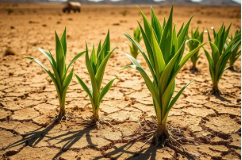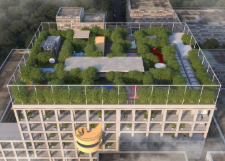
Mushroom farming is rapidly transforming the agricultural landscape in Narail, with a growing number of farmers, youth, and women embracing it as a profitable and sustainable source of income.
Local growers report daily harvests of 20–25 kg per farm, supplying fresh mushrooms to nearby markets at an average price of Tk 250 per kg. Inspired by successful models in neighboring districts like Jashore and Magura, Narail farmers are using rooftops, backyards, and small sheds to cultivate mushrooms with minimal input costs.
Women in particular are playing a vital role in this boom, forming collectives and small businesses to grow and sell mushrooms. Many were trained at regional centers such as Magura Dream Mushroom Center, which has become a hub for mushroom entrepreneurship.
Experts say mushroom farming is gaining popularity due to its low space requirements, pesticide-free nature, and high nutritional value. It is also helping to diversify rural incomes in a region where traditional crop farming faces increasing challenges.
Despite strong demand, the industry still faces hurdles such as limited access to high-quality mushroom seeds (spawn), lack of cold storage, and processing infrastructure. Officials from the Mushroom Development Institute have pledged support through training and the introduction of improved mushroom varieties.
Bangladesh currently produces over 40,000 tonnes of mushrooms annually, but domestic supply meets only half the national demand. Narail’s rapid rise could help close that gap and position the district as a key player in the country’s mushroom economy.














